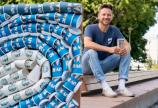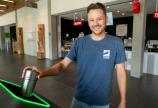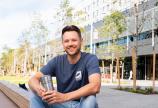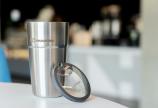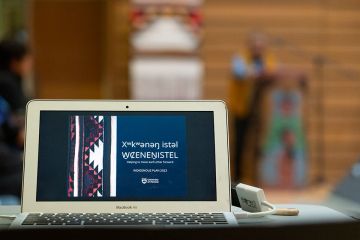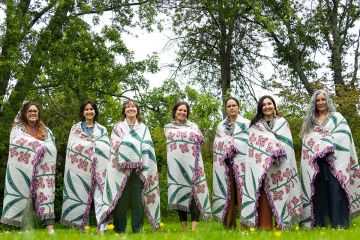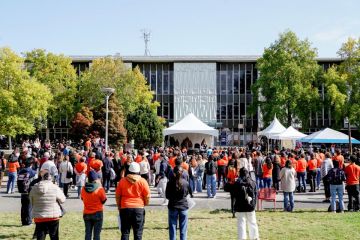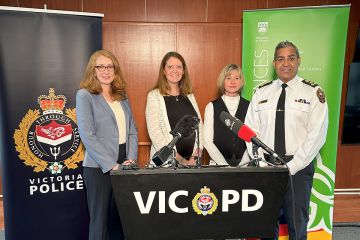Surfrider UVic drives switch to reusable to-go cups
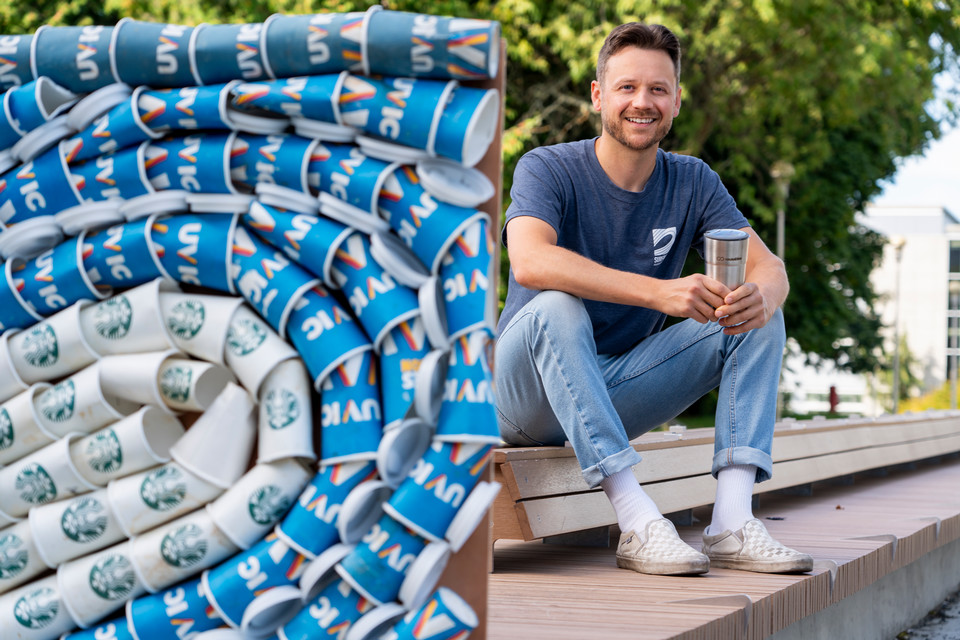
In a world where convenience often comes at the cost of our environment, a group of passionate students at the University of Victoria (UVic) is challenging the status quo. This September, UVic launched an innovative pilot project that could help redefine how the campus community consumes beverages on the go. The collaborative project, led by the Surfrider UVic student club and supported by University Food Services and the Office of Campus Planning and Sustainability, introduces reusable beverage cups at two cafes on campus. But this isn’t just about cups—it’s about creating a culture shift.
The challenge
The journey began in September 2021, when Surfrider UVic set out to tackle the mounting problem of single-use plastics on campus. What started as a campaign to ban these plastics quickly grew into something much bigger. With over 2,700 signatures and a deep commitment to the issue of ocean plastic pollution, the students learned that more than 4,000 single-use coffee cups were being sold and discarded at UVic every business day. Most of these ended up in the wrong place—either improperly disposed of, contaminating recycling and compost bins, or worse, littering the campus.
"We knew something had to change," recalls Matt Miller, a UVic PhD student in Oceanography who has been at the heart of this initiative since he joined the club in 2018. “As a student myself, we recognize how busy students are, and why there is a large demand for ‘to-go’ food and beverage packaging. While there’s a 25-cent discount for those who bring their own mug, most customers do not take advantage of it. That’s why we wanted to come up with a free-to-borrow system of reusable to-go cups.”
According to UVic’s 2022 campus Waste Audit Final report, it was projected that approximately 19,188 kgs of non-waxed coffee cups would be sent to landfill, annually – despite being accepted in the campus waste diversion program.
The circular economy: A new way forward
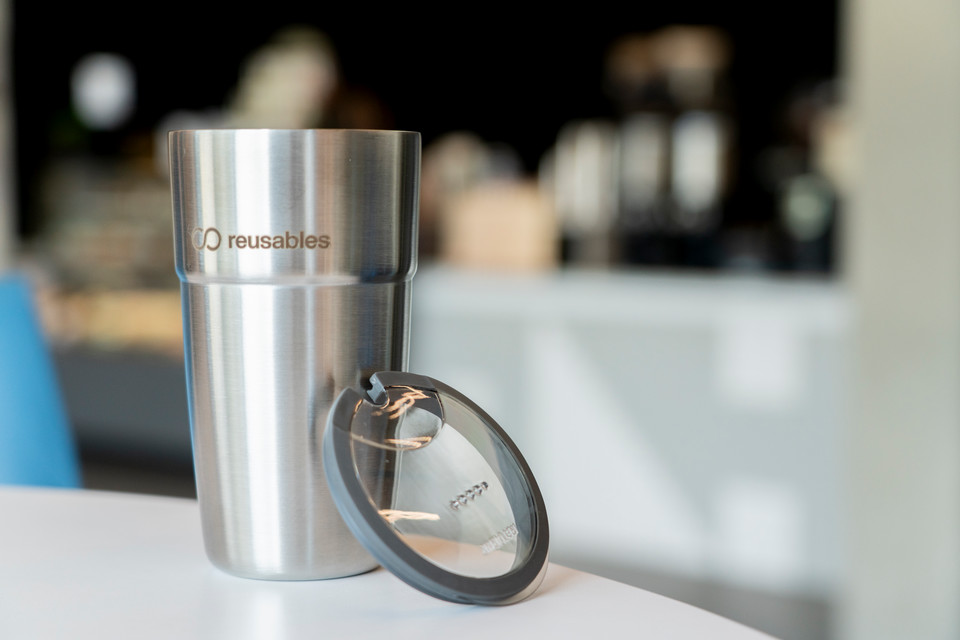
The solution? A circular economy approach. In this model, products are designed for longevity, reuse and eventual recycling, minimizing the extraction of new raw materials and significantly reducing greenhouse gas emissions and the creation of solid waste. For Surfrider UVic, this wasn’t just about finding an alternative to single-use items—it was about fostering a shift in mindset.
"Since the BC and federal governments recently enacted bans on many single-use plastic items, we decided to transition our campaign to focus on reusables," explains Miller.
We wanted to discourage UVic from simply switching to another form of single-use material, like paper. Research is showing that reusables are the most sustainable packaging option when reused enough times. That’s what led us to propose a pilot for reusable to-go beverage cups."
—Matt Miller, UVic PhD student in Oceanography
A collaborative effort
With the vision in place, the next step was action.
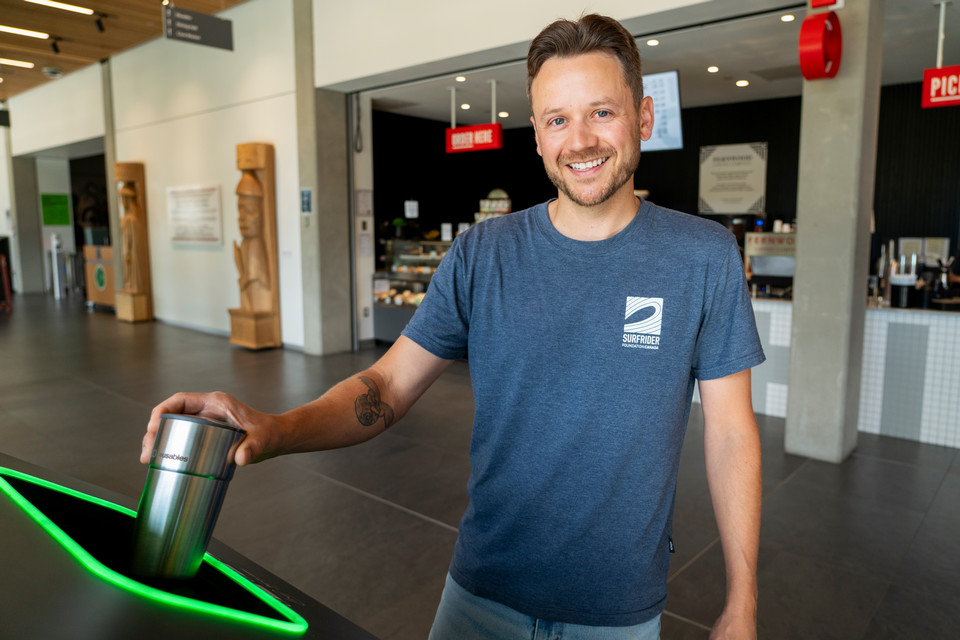
Matt Miller, UVic Surfrider student group
Surfrider UVic was first established in 2016 by several Earth and Ocean Science graduate students. Miller, who joined the club in 2018, helped start the conversation with key university stakeholders after forming a relationship with Reusables.com - a Vancouver-based leading technology platform for circular economy solutions. Reusables.com has been partnering with higher education institutions to reduce single-use plastic food ware in their campuses, receiving funding support from the CleanBC Plastics Action Fund.
Miller, with support from the Office of Campus Planning and Sustainability and University Food Services (UNFS) and Reusables, wrote and submitted a project application to UVic’s Campus Sustainability Fund in early 2024. Upon presenting to the Review Committee, the initiative was awarded $25,000 to help UNFS operationalize the pilot, bringing the project to life. The fund provided the necessary financial support for University Food Services to purchase the reusable cups, related infrastructure and technologies.
This initiative is a perfect example of what can happen when students and staff come together with a shared goal."
—Kylie Hissa, Acting Sustainability Manager
"It aligns seamlessly with UVic’s Climate and Sustainability Action Plan, which views the Campus as a Living Lab for innovative climate solutions. Integrating climate and sustainability across the whole institution is an on-going process of co-designing sustainability – and it requires the encouragement and empowerment of all campus users to take part in the process, " she added.
The pilot officially kicked off during the week of student orientation at Port and Boardwalk cafes on campus. When ordering their beverage of choice, customers can opt in to receive their stainless-steel reusable travel mug to “borrow,” Like a library card membership, “borrowing” a reusables mug requires signing up for a Reuser ID – digital QR code similar to a library card on a phone or digital device. For users who want to be more involved with the program, downloading the Reusables app will provide reminders to return the cup, identify the locations to return the cups, as well as allow users to track their individual impact and the collective impact created by UVic.
As the pilot progresses, the hope is that it will inspire a campus-wide shift away from single-use culture and consumption, influencing everything from food packaging to dining practices. The project also underscores UVic’s commitment to the United Nations Sustainable Development Goals (SDGs), particularly those focused on responsible consumption and production, and life below water.
Photos
In this story
Keywords: community, sustainability, environment, climate, administrative, student life, recycling, partnerships, People Place Planet, Sustainable Partnerships, SDG13, climate action, SDG14, life below water, SDG11, sustainable cities and communities, science
People: Matt Miller, Kylie Hissa

